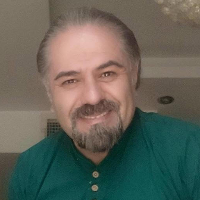Developing Teachers’ Informal Learning Model, the Case Study of Elementary Schools in Tabriz
Informal learning is regarded as one of the most common and, at the same time, the most efficient learning methods at the level of modern organizations. It is assumed to be one of the most typical and usual learning types in the work environment which results in knowledge and skills. The present study is aimed at designing and validating teachers’ informal learning leadership model at three dimensions and levels.
exploratory sequential approach was applied as a mixed-method design in the present study. Hence, content analysis was used in the first stage of the research design. Then, in the second stage, a quantitative research was carried out on 269 participants who were elementary school teachers in the context of Tabriz city. Cluster sampling was used via model testing model. SPSS and Smart PLS 3 were used for analyzing quantitative data.
the results of the study indicate that teachers’ informal learning leadership model is implemented efficiently at three levels: opinions (3 variables), strategy (5 variables0 and behavior (8 variables). According to the results of the study, strategies had the highest effect on teachers’ informal learning. Also, due to the lack of organization and discipline in informal learning, school management’s opinions and attitudes have key significance in teachers’ informal learning. Furthermore, for integrating and consolidating all the abilities in line with enhancing teachers’ informal learning level, the behavioristic dimension in school management should be taken into consideration as a facilitator.
According to the findings of the study, thanks to applying teachers’ informal learning leadership, teachers’ mental health in the classroom context are enhanced and promoted. Consequently, teachers’ role and contribution to students’ learning become more evident and highlighted.
-
Pattern of Professional Development of Human Resources of Knowledge-based Companies(Study case: Science and Technology Park of Iranian Research Organization for Science and Technology)
Bijan Abdollahi *, Jafar Salemi, Hasan Zeinabadi, Ghasem Ramezanpour Nargesi
Management Researches, -
Requirements for optimal allocation of public resources to higher education institutions considering the impact of sanctions and the country's tax capacities
Abdolrahim Nohebrahim*, Hassan Reza Zeinabadi, Hossein Abbassian, Mohammad Taherinejad
Iranian National Tax Administration,



